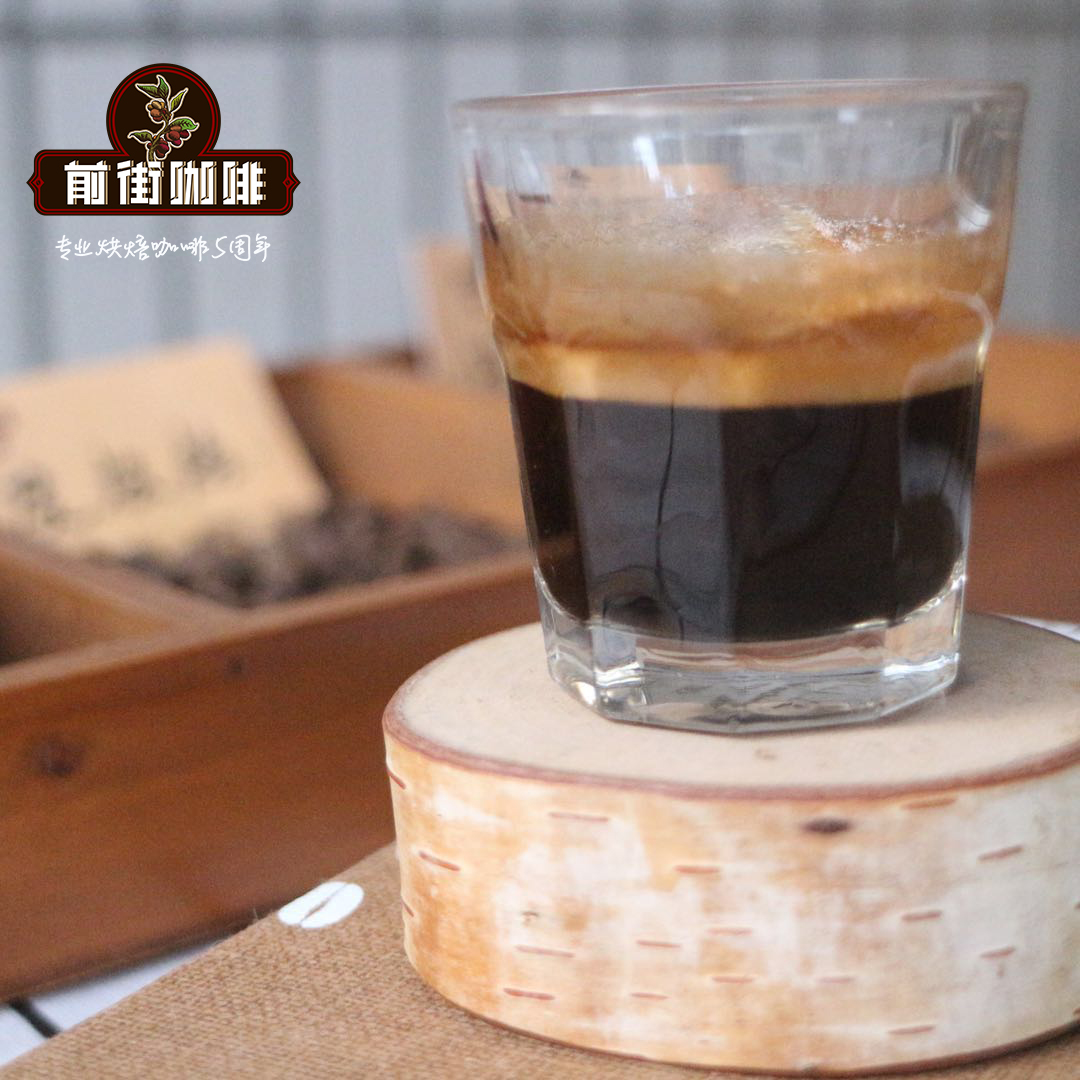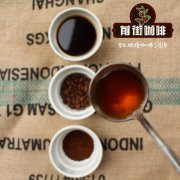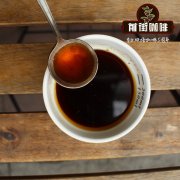How do you cook mocha beans? how much is mocha beans? is mocha beans good?

Professional coffee knowledge exchange more coffee bean information please follow the coffee workshop (Wechat official account cafe_style)
The only living monument in the coffee world: Yemeni mocha coffee beans
With the most unique, rich and fascinating complex smells in the world: red wine, wild game, dried fruit, blueberries, grapes, cinnamon, tobacco, sweet spices, log and even chocolate, you can see a variety of adjectives used in Yemeni mocha coffee beans.
Yemen, the hometown of mocha coffee beans, when it comes to Yemeni coffee, it is necessary to mention mocha. Everyone has heard of "mocha coffee". What exactly is mocha? There are many answers to this question. Some people say that mocha is a certain place of origin, and some people remember that mocha is sweet chocolate coffee. In fact, authentic mocha coffee is only produced in the Republic of Yemen in the southwest of the Arabian Peninsula, grows on steep hillsides at elevations of 3, 000 to 8, 000 feet, and is the oldest coffee in the world.
As early as more than 500 years ago, Yemen produced coffee in an ancient way. In the early 17th century, the first Yemeni coffee sold to Europe was exported through the ancient port of Mocha, which amazed Europeans. The delicious coffee shipped from the port of Mocha was called "Mocha Coffee", which is the origin of the name "Mocha Coffee".
Neighboring Ethiopia across the Red Sea also sells coffee through the port of Mocha, so Ethiopian sun-treated coffee is often called mocha. (such as Mocha Haral Ethiopia Harrar) now the old port of Mocha has long been abandoned due to sediment deposition (today's place name Al Makha) and is exported by the northwestern port of Hudaida (Hodeida). However, people have long been accustomed to the name of Mocha, which is famous to the sky.
Deep-roasted Yemeni coffee often shows a chocolate-like bitter sweet flavor, affecting today's fancy coffee seasoned with chocolate sauce is also known as the word "mocha". So when you see the word "mocha coffee", it may refer to pure Yemeni coffee, or neighboring Ethiopian coffee, or simply fancy coffee flavored with chocolate sauce. In any case, for picky coffee lovers, only real Yemeni coffee is qualified to be called "mocha coffee".
It is worth mentioning that, just as there are many meanings of mocha, there are various spellings of mocha in English: Moka, Moca and Mocca are all common spellings. I have seen as many as four local spellings in the sacks and documents of Yemeni coffee: "Mokha", "Makha", "Morkha" and "Mukha", which all have the same meaning.
The Yemeni mocha is the originator of the world coffee trade and plays an important role in promoting delicious coffee all over the world. In the 17th century, it was called "Arabica coffee" (Arabia) (this is also the origin of the name "Arabica species" later! Yemeni mocha sailed across the ocean to Italy and other European Catholic countries, and Yemeni coffee has been the only coffee producer sold to Europe for more than 150 years.
In ancient times, in conservative Catholic countries, extraordinarily good things were often considered evil, and coffee was once burdened with inexplicable evil. It was not until the Vatican Pope, who also loved coffee, declared that coffee was a Catholic drink and blessed coffee drinkers that coffee began to spread widely in Europe.
Today, Yemeni coffee farmers still produce coffee in the same way as they did 500 years ago. Coffee berries grow naturally on trees, do not use any artificial fertilizers or pesticides, receive a small amount of rain and fog on the hillside in summer, blossom and bear fruit, and in dry winter, ripe coffee berries are allowed to hang on trees to dry naturally-a very unique and rare practice because of the extremely dry climate and intense sun in Arabia, which is allowed to do so in other coffee producing areas. The same practice may cause coffee berries to rot on the trees.
Ripe or dried coffee berries fall naturally from the tree, or are shaken and picked. Coffee farmers, with a total population of nearly 1/4 in Yemen, bask their berries on their roofs, low sheds in front of their doors, or even spread them directly on the dirt floor, exposed to the intense dry winter sun. After drying the peel and pulp, grind off the dried shell and pulp with an old-fashioned stone mill (two stone mills stacked on top of each other), and the coffee beans are treated in this way.
Up to now, a small number of coffee farmers still use animals (such as camels and donkeys) as the power source of stone grinding, compared with Central and South American countries that use advanced machinery and equipment to deal with coffee beans in large quantities, and even neighboring Kenya with a short history of coffee. Yemen Mocha is the only living monument in the coffee world!
Do you know? The Yemeni coffee you drink today is basically not much different from the "Arabian coffee" enjoyed by aristocratic European businessmen hundreds of years ago in the oldest cafe in Europe in the Piazza San Marco in Venice, Italy.
-
Quick ~ give me a Yemeni mocha!
Yemeni mocha coffee bean brand recommendation
The Yemeni mocha beans baked in Qianjie Coffee are fully guaranteed in terms of brand and quality. And more importantly, the performance-to-price ratio is extremely high, each pack of 227 grams, the price is only about 85 yuan. According to the calculation of 15 grams of coffee beans per cup of coffee, a bag of coffee can make 15 cups of coffee, which costs only about 6 yuan per cup, which is recommended by conscience compared to the price of tens of yuan a cup sold in a coffee shop.
Qianjie coffee: Guangzhou bakery, the store is small but a variety of beans, you can find a variety of unknown beans, but also provide online store services. Https://shop104210103.taobao.com
Important Notice :
前街咖啡 FrontStreet Coffee has moved to new addredd:
FrontStreet Coffee Address: 315,Donghua East Road,GuangZhou
Tel:020 38364473
- Prev

The characteristics of single mocha coffee beans _ introduction to the country of origin of mocha coffee beans are mocha coffee beans expensive
Professional coffee knowledge exchange more coffee bean information please follow the coffee workshop (Wechat official account cafe_style) [mocha coffee beans (MOCHA)] place: Yemeni mocha coffee beans can be said to be one of the major coffee beans in the world. At present, the coffee produced in Yemen is the best, followed by the mocha in Ethiopia; the mocha coffee belt is extremely acidic and sweet.
- Next

Harvest the flavor contest champion! Uganda Fine Coffee Bean Kava Cooperative Shibi Kabeva Sunning
Professional coffee knowledge exchange More coffee bean information Please pay attention to coffee workshop (Weixin Official Accounts cafe_style) Harvest flavor contest champion! Uganda boutique coffee beans kava cooperative hibi kabeva sun beans flavor? Uganda introduced Arabica coffee trees in 1900, while northern Bugisu along the Kenyan border produces higher quality coffee.
Related
- Detailed explanation of Jadeite planting Land in Panamanian Jadeite Manor introduction to the grading system of Jadeite competitive bidding, Red bid, Green bid and Rose Summer
- Story of Coffee planting in Brenka region of Costa Rica Stonehenge Manor anaerobic heavy honey treatment of flavor mouth
- What's on the barrel of Blue Mountain Coffee beans?
- Can American coffee also pull flowers? How to use hot American style to pull out a good-looking pattern?
- Can you make a cold extract with coffee beans? What is the right proportion for cold-extracted coffee formula?
- Indonesian PWN Gold Mandrine Coffee Origin Features Flavor How to Chong? Mandolin coffee is American.
- A brief introduction to the flavor characteristics of Brazilian yellow bourbon coffee beans
- What is the effect of different water quality on the flavor of cold-extracted coffee? What kind of water is best for brewing coffee?
- Why do you think of Rose Summer whenever you mention Panamanian coffee?
- Introduction to the characteristics of authentic blue mountain coffee bean producing areas? What is the CIB Coffee Authority in Jamaica?

